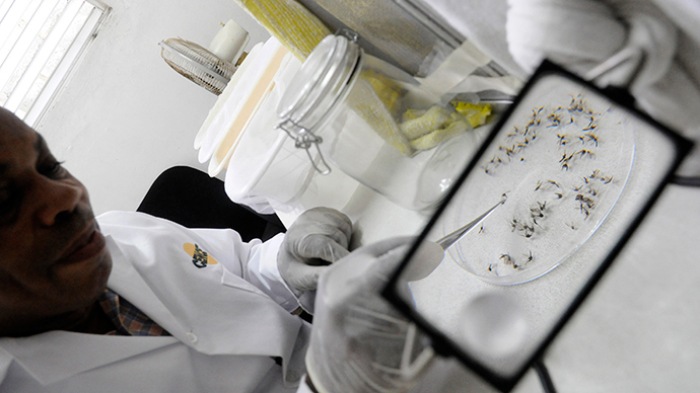Mosquito-Virus Chikungunya Has Infected 1 Million People Across Americas, Found in Florida and Texas; No Treatment or Vaccine Yet Discovered

The mosquito-born Chikungunya virus has reportedly infected over 1 million people and killed 155 since beginning its spread throughout the Americas a year ago. There is no known treatment or vaccine for the disease, with cases being reported in Florida and Texas as well.
CNN reported on Thursday that every country in Central America has now reported cases of the virus, while the U.S. has noted of 11 confirmed cases this year in Florida. Confirmed cases reported in Texas have been with those who've traveled to the Caribbean and areas where the virus is more common.
"It wasn't until 2013 that unfortunately a traveler resulted in local transmission of Chikungunya," said Erin Staples of the U.S. Centers for Disease Control and Prevention, referring to people infected in the Caribbean island of Saint Martin.
According to the CDC's website, Chikungunya's symptoms most commonly include fever and joint pain, but can also include headache, muscle pain, joint swelling, or rash.
The disease is widespread in Africa and Asia, but it was not until late 2013 that the first cases were reported in the Americas, on the island in the Caribbean. It was first identified in 1952 in Tanzania, and has since spread to East Africa, Southeast Asia, and has even reached the Pacific Islands and India, where it has infected millions in the past several years.
As there is no known medicine to treat the virus, prevention measures are very important. Travelers across the Americas are advised to protect themselves from mosquito bites by using insect repellent, or wearing long sleeves and pants.
Mosquitoes are able to pick up the virus from the bloodstreams of infected people, and can in turn infect others through their bites.
Staples added that the environmental conditions in the Americas are perfect for the virus to flourish, and it will be very difficult to eradicate it. The novelty of Chikungunya in the region also means people haven't built up any immunity toward it.
"Where we saw the biggest jump was after it reached the Spanish-speaking countries in the region," Staples added, referring to countries such as the Dominican Republic, which has reported more than 520,000 cases.
The infection rates are expected to rise as summer reaches a number of South American nations. "Brazil, Peru, Paraguay are coming into their summer months and reporting their first local transmission," she added.
Time magazine noted that although the virus doesn't have anything close to Ebola's death rate, it's similar because there's no way to treat the virus, despite decades of study.
"[Chikungunya] is another example of an emerging infectious disease that we clearly have a light at the end of the tunnel for in a vaccine, and it's pharmaceutical interest that really seems to be the road block," said Dr. Anthony Fauci, director of the National Institute of Allergy and Infectious Diseases.
"It's the big dilemma. The frustration. Back when Ebola was not on the front pages, we didn't have very many enthusiastic pharmaceutical companies."
Dr. Roger Nasci of the CDC added that although a widespread outbreak in the U.S. is unlikely, there is still cause for concern.
"We are very concerned about Chikungunya moving into the Western Hemisphere," Nasci said. "We have the two different species of mosquitoes in the U.S. capable of spreading the virus."




























